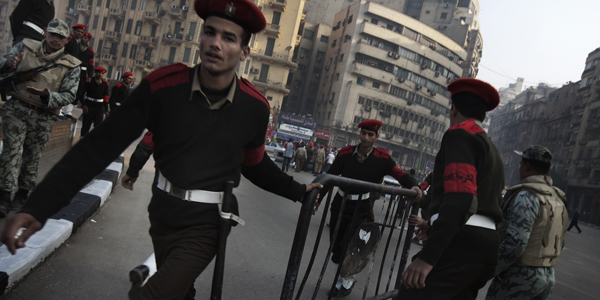The Gamble for Egypt’s Future
The Atlantic has posted my essay about the next gamble for Egypt’s revolutionaries: Can they sustain pressure on the ancien regime?
The euphoria in Cairo already is already giving way to anxiety as Egyptians contemplate the terrifying task of dismantling Hosni Mubarak’s police state and building an accountable Arab democracy in the image of Tahrir Square.
The old order has been decapitated, but still exerts an undeniable gravitational pull over the entire polity. Thousands or possibly millions of policemen, informants, and clients of Mubarak’s state tremble at the prospect of transparency and, perhaps, retribution. If the protesters want to pursue reform, they will have to consider, and maybe even accommodate, those remnants of the old order.
On the morning before Mubarak resigned, I sat poolside with a group of retired generals at the Gezira Club, a members-only holdover of colonial times. A recently retired general from state security tried to interrogate me about the demonstrators; he was still convinced, against all evidence, that it was a Muslim Brotherhood uprising. The police, he was certain, would soon regain control of the nation. “How will the police regain public trust when they are so hated?” I asked. He couldn’t fathom what I was saying. “The majority of people love the police,” he shouted at me. “They will respect the police because they need the police.”
Old Egypt was on display elsewhere as well, in the patronizing and impatient tone in which the prime minister addressed the public in his first press conference after Mubarak’s downfall, in the capricious manner with which soldiers turned away some people at checkpoints while allowing others to pass, in the air of disgust with which some of Egypt’s millionaires, talking to me over cocktails at the Bodega Bar the day after Mubarak’s abrupt disappearance, dismissed the revolution as a failure that would usher in an anti-business government.
The revolutionaries, gambling as they have every step of the way, have gone for broke and demanded complete systemic reform: a new constitution written from scratch and an interim government purged of the Mubarak family and their Cardinal Richelieu, the spymaster and momentary Vice President Omar Suleiman. Perversely, though, the only way toward that goal was another, bigger, gamble: the revolutionaries have asked a military dictatorship to manage the transition in the hope that a committee of unelected generals who have spent a career defending Mubarak’s order will now willingly write themselves out of power.
The prospect may sound crazy, naïve, even delusional – but then again, three weeks ago so did the possibility of millions of Egyptians embracing civil disobedience and successfully castrating the Mubarak regime.



nice article , well written
Very worthwhile. A real oasis in a sea of crap on these vital subjects.
Bravo!